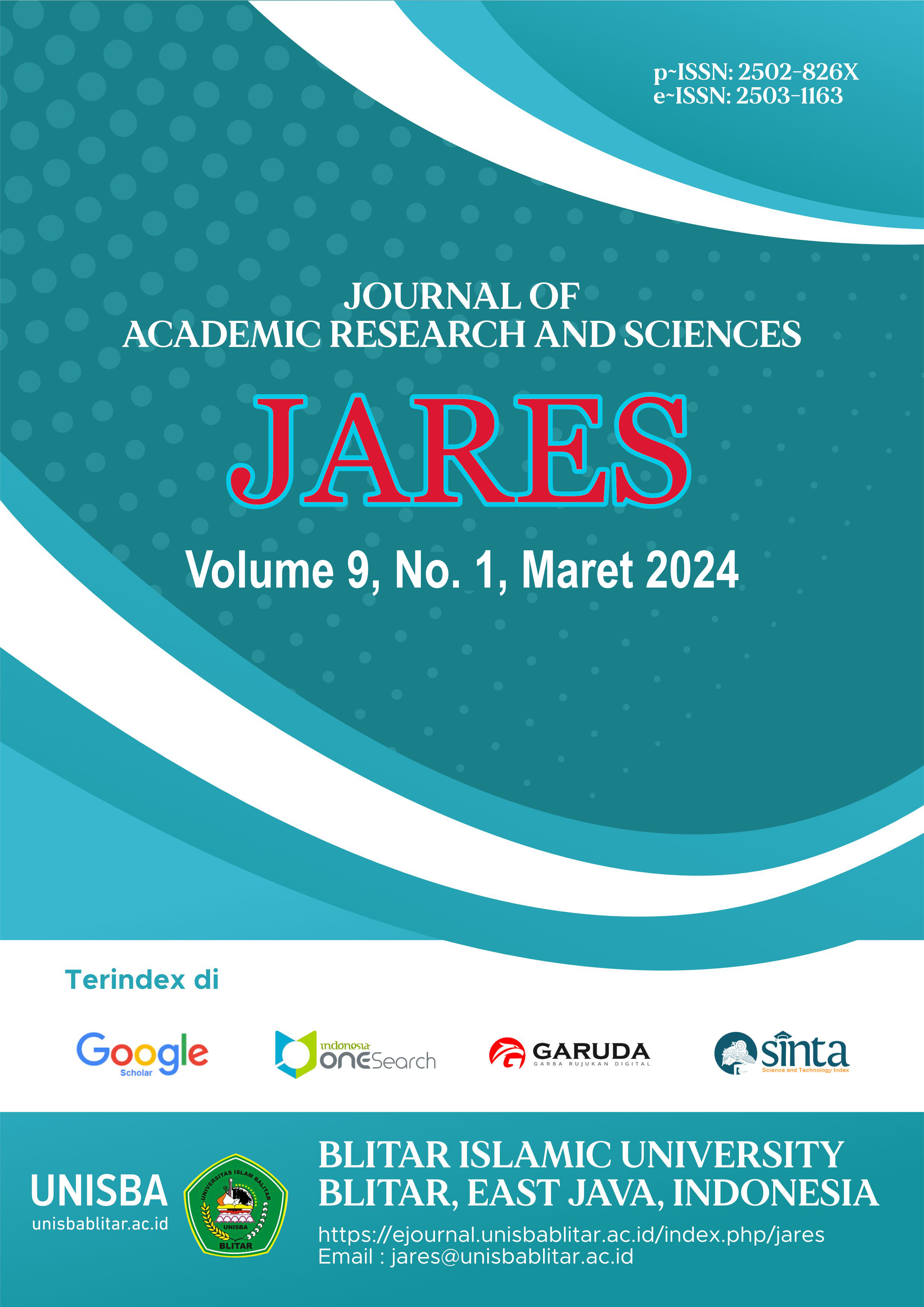ANALYSIS OF FACTORS CONTRIBUTING TO WORK STRESS AMONG EXPATRIATE AIRLINES CREW IN SAUDI ARABIA
DOI:
https://doi.org/10.35457/jares.v9i1.3312Keywords:
work stress, aviation, multivariate regressionAbstract
Work stress can significantly impact the performance of cabin crew in the airline industry, potentially leading to job errors with critical implications for safety, a paramount concern in the industry. The research focuses on factors influencing work stress among cabin crew, providing a valuable reference for improving both service quality and safety in the industry. The potential key factors that affect work stress, including workload, cross-cultural adjustment, rotating work schedules, interpersonal relationships, organizational relationships, and physical demands, are established through extensive literature reviews. The relevant data were collected from a sample of cabin crews in Saudi Arabia representing various nationalities. The most pertinent factors for the problem setting are determined by applying a multivariate regression analysis, where the theoretical understanding is statistically verified. The analysis suggests that the theory is supported by the sample data with a fitness level of 0.85 in terms of the determination coefficient, implying strong materialization of the theory. Furthermore, the agreement between theory and reality is supported by the ANOVA and t-tests. The study concludes that workload is the most dominant factor affecting work stress, followed by organizational relationships and rotating work schedules. Statistically less significant factors include cross-cultural adjustment, interpersonal relationships, and physical demands.
Downloads
References
[2] E. McNeely et al., “The self-reported health of U.S. flight attendants compared to the general population,” Environ. Heal. A Glob. Access Sci. Source, vol. 13, no. 1, pp. 1–11, 2014, doi: 10.1186/1476-069X-13-13.
[3] N. Universari and M. Harsono, “Antecedents and Consequences of Work Stress Behavior,” Econ. Bus. Solut. J., vol. 5, no. 1, p. 46, 2021, doi: 10.26623/ebsj.v5i1.3362.
[4] Y. Anggraeny, S. S. Russeng, and L. M. Saleh, “Pengaruh Beban Dengan Stres Kerja Terhadap Kelelahan Kerja Perawat Rs Tadjuddin Chalid,” Hasanuddin J. Public Heal., vol. 2, no. 1, pp. 66–76, 2021, doi: 10.30597/hjph.v2i1.12653.
[5] S. Shanjabin, M. Khatun, and A. Hossain, “Factors Affecting Job Stress and Impact of Stress on Absenteeism: a Study on the Banking Sector in Bangladesh,” Khulna Univ. Stud., vol. 19, no. 1, pp. 74–89, 2022, doi: 10.53808/kus.2022.19.01.2129-m.
[6] M. Chen, “The Impact of Expatriates’ Cross-Cultural Adjustment on Work Stress and Job Involvement in the High-Tech Industry,” Front. Psychol., vol. 10, no. October, pp. 1–10, 2019, doi: 10.3389/fpsyg.2019.02228.
[7] E. T. P. Saratian, M. Soelton, A. J. Ali, H. Arief, L. Saragih, and F. Risfi, “The Implication of Work Load in the Work Place That May Provoke Work Stress,” South East Asia J. Contemp. Business, Econ. Law, vol. 20, no. 5, pp. 172–177, 2019.
[8] M. U. Sajid, M. Ihsan, and A. Reba, “Work Environment Stress : Causes and Outcomes,” Int. J. Innov. Creat. Chang., vol. 15, no. 5, pp. 979–992, 2021.
[9] S. Li and S. Zizzi, “The influence of physical activity on international graduate students’ cross-cultural adjustment: a qualitative longitudinal study,” Grad. J. Sport. Exerc. Phys. Educ. Res., vol. 4, pp. 43–59, 2017, [Online]. Available: https://www2.worc.ac.uk/gjseper/documents/International_student_adjustment_4_43-59.pdf
[10] G. E. Bijwaard and Q. Wang, “Return Migration of Foreign Students,” Eur. J. Popul., vol. 32, no. 1, pp. 31–54, 2016, doi: 10.1007/s10680-015-9360-2.
[11] Tarwaka, Keselamatan Kesehatan Kerja Dan Ergonomi Dalam Perspektif Bisnis. Surakarta: Harapan Press, 2015.
[12] A. Widyanti and M. Firdaus, “Assessment of mental workload of flight attendants based on flight duration: An effort to provide safe working condition,” Aviation, vol. 23, no. 3, pp. 97–103, 2020, doi: 10.3846/aviation.2019.11847.
[13] J. R. Rui and H. Wang, “Social network sites and international students’ cross-cultural adaptation,” Comput. Human Behav., vol. 49, pp. 400–411, 2015, doi: 10.1016/j.chb.2015.03.041.
[14] M. Chong and A. Ph, “Relationship between Demographic Factors , Social Support and Sociocultural Adjustment among International Post Graduate Students in a Malaysian Public University,” pp. 87–92, 2015, doi: 10.5901/jesr.2015.v5n2p87.
[15] M. I. Hafitah Mohd Tahir, “Cross-Cultural Challenges and Adjustments of Expatriates: A Case Study in Malaysia Aida Hafitah Mohd Tahir and Maimunah Ismail *,” Turkish J. Int. Relations, vol. 6, no. 3, pp. 72–99, 2007.
[16] H. A. Patrick and I. S. Ravindra, “Expatriates’ Cultural Intelligence and Cross Cultural Adjustment,” Adarsh J. Manag. Res., vol. 11, no. 1, p. 1, 2018, doi: 10.21095/ajmr/2018/v11/i1/139599.
[17] A. Gillet and D.-G. Tremblay, “Working in the Air: Time Management and Work Intensification Challenges for Workers in Commercial Aviation,” Open J. Soc. Sci., vol. 09, no. 01, pp. 272–290, 2021, doi: 10.4236/jss.2021.91020.
[18] P. Usha, “Influence of Job Stress on Interpersonal Skills among Government Employees,” Int. J. Sci. Res., vol. 10, no. 6, pp. 448–452, 2021, doi: 10.21275/SR21429132046.
[19] A. Yahaya, N. Yahaya, A. T. Bon, S. Ismail, and T. C. Ing, “Stress level and its influencing factors among employees in a plastic manufacturing and the implication towards work performance,” Elixir Online, vol. 41, pp. 5932–5941, 2011.
[20] R. L. T. & W. C. B. Joseph F. Hair, JR, Rolph E. Anderson, Multivariate Data Analysis, Fifth Edit. New Jersey: Prentice Hall , Inc, 2011.
[21] L. R. Cristenzein and K. T. Adhi, “Factors Related to Work Stress among Health Office Employees during Covid-19 Pandemic Faktor yang Berhubungan dengan Stres Kerja pada Pekerja Dinas Kesehatan di Masa Pandemi COVID-19,” The Indonesian Journal of Occupational Safety and Health, vol. 10, no. 3. pp. 389–401, 2021. [Online]. Available: https://e-journal.unair.ac.id/IJOSH/article/view/28589/pdf

Downloads
Published
Issue
Section
License
Authors who publish with this journal agree to the following terms:
- Copyright on any article is retained by the author(s).
- Author grant the journal, right of first publication with the work simultaneously licensed under a Creative Commons Attribution License that allows others to share the work with an acknowledgement of the work’s authorship and initial publication in this journal.
- Authors are able to enter into separate, additional contractual arrangements for the non-exclusive distribution of the journal’s published version of the work (e.g., post it to an institutional repository or publish it in a book), with an acknowledgement of its initial publication in this journal.
- Authors are permitted and encouraged to post their work online (e.g., in institutional repositories or on their website) prior to and during the submission process, as it can lead to productive exchanges, as well as earlier and greater citation of published work.
- The article and any associated published material is distributed under the Creative Commons Attribution-ShareAlike 4.0 International License













